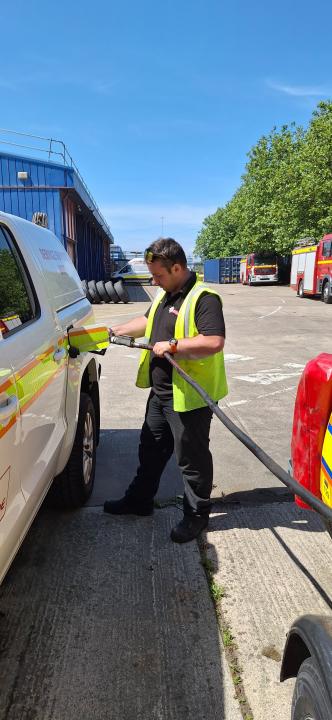Avon Fire and Rescue Service has announced that it has completed testing for the use of sustainable alternative fuel in its vehicles.
With the service’s commitment to reducing carbon emissions and improving sustainability, the trial was initiated by the service’s Fleet, Technical and Environmental team and involved running one of the service’s workshop vehicles on Hydrotreated Vegetable Oil for more than 1,000 miles. As this trial unfolded, the technicians operating the vehicle did not see a reduction in performance.
Hydrotreated Vegetable Oil (HVO) is a renewable fuel that can replace diesel in engines without needing any modifications to the vehicle, yet still managing to produce 80-90% fewer emissions when compared to traditional diesel. This benefit can be further highlighted by the fact that, should AFRS use HVO in all of its diesel vehicles, it could see its annual CO2 emissions drop from 540 tonnes to 7.6 tonnes.
It also has a longer shelf life, lasting ten years compared to the year that it takes before diesel begins to degrade.

Matt Derrick, Head of Transport and Technical Services, said:
“In an era where environmental concerns and operational efficiency are at the forefront of everyone’s mind, emissions reductions have become a critical focus for us as an emergency service to assist in our sustainability targets.
“I’m pleased to see the success of this trial, as we’re keen to trial new methods to reduce our carbon footprint as a Service. We are looking forward to progressing with the use of HVO and other renewable energy sources and we are now rolling it out to some of our euro 6 Volvo fire engines and also all euro 6 ancillary vehicles, including cars and vans.”
Alongside the environmental benefits of using HVO, it was also discovered following lab tests before and after the trial that there was a significant reduction in engine wear when the vehicle used HVO.
Image credit: iStock and Avon Fire and Rescue Service



















